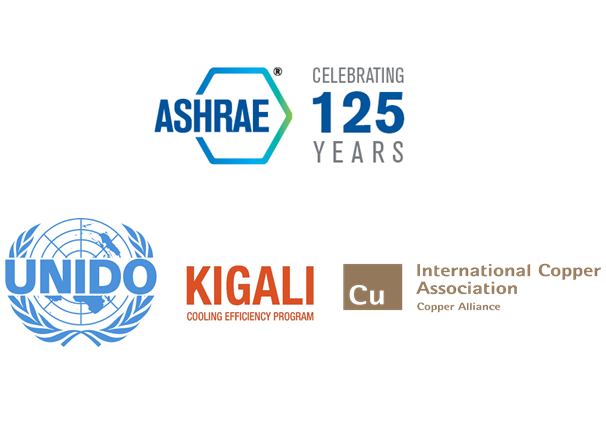UNIDO launches its latest guidance document supporting domestic and commercial refrigeration manufacturers
The United Nations Industrial Development Organization (UNIDO) launches its latest guidance document supporting domestic and commercial refrigeration manufacturers seeking to improve energy efficiency and reduce greenhouse gas emissions. This project is funded by the Kigali Cooling Efficiency Program (K-CEP) and supported by International Copper Association (ICA).
Due to COVID-19 restrictions, the study will be launched through a webinar which will present the outcomes of the project and provide insight into how to use the guidance document, analyze changes in manufacturing, evaluate technical and financial options for energy efficient refrigeration equipment and calculate associated emission reductions.
The webinar will be hosted by the American Society of Heating, Refrigerating and Air-Conditioning Engineers (ASHRAE) towards an inclusive and sustainable industrial development
Add to your agenda: 22 July 2020, 15:00-16:30 CEST
Click here free of charge to register: https://www.ashrae.org/2020onlinejuly22
Recordings will be available on ASHRAE Global Training Centre website following the webinar.
This new study sets out a methodology and tools for manufacturers to understand cost and net benefits for different energy efficient refrigeration design options and the required manufacturing line upgrades.
The COVID-19 outbreak has disrupted cold value chains which are critical for the distribution of foods and vaccines. The refrigeration and air conditioning sector is currently responsible for around 17% of global electricity consumption and, in some developing countries, even exceeds 40 percent of the national electricity demand. In order to reduce the impact on health and the environment, it is vital to improve the energy efficiency of the refrigeration systems and to adopt refrigerants that have zero or low climate impact.
- Intro
- Report structure, methodology, findings
- Intro to CERA- DOE software
- Industrial examples.
- Where to download resources; get consultancy follow up.
- Q&A
Lead author and presenter Omar Abdelaziz, Ph.D., Member ASHRAE, and Assistant Professor of Thermofluids at Zewail City of Science and Technology highlights that “The outcomes of the project provide insight into how to analyze changes in manufacturing, evaluate technical and financial options for energy efficient products and calculate associated emission reductions”. “We hope manufacturers and service providers that need help to change their products and factories in today’s competitive marketplace can rely on the project guidance document and consultants familiar with the work to improve products energy efficiency and reduce emissions.”
What the participating companies said:
“The guidance is insightful and has given us direction moving forward. GETS is interested in further training workshops and webinars”. Uganda: GETS
Lebanon: Lematic: “the recommendations in the report are very useful”.
“We are evaluating the software and looking for support to increase our engineering capacity”. Guatemala: Fogel
“We are exploring the suggested actions with emphasis to improve the energy efficiency of our systems”. Ecuador: Indurama
“Our first step to implementation of the guidance is to source high-efficient compressors” Morocco: Manar
For more information about this press release or if you need assistance to register for the webinar please contact Ayah Said at asaid@ashrae.org.
[1] CERA is originally developed by the Lawrence Berkeley Laboratory of the United States Department of Energy (DOE)
